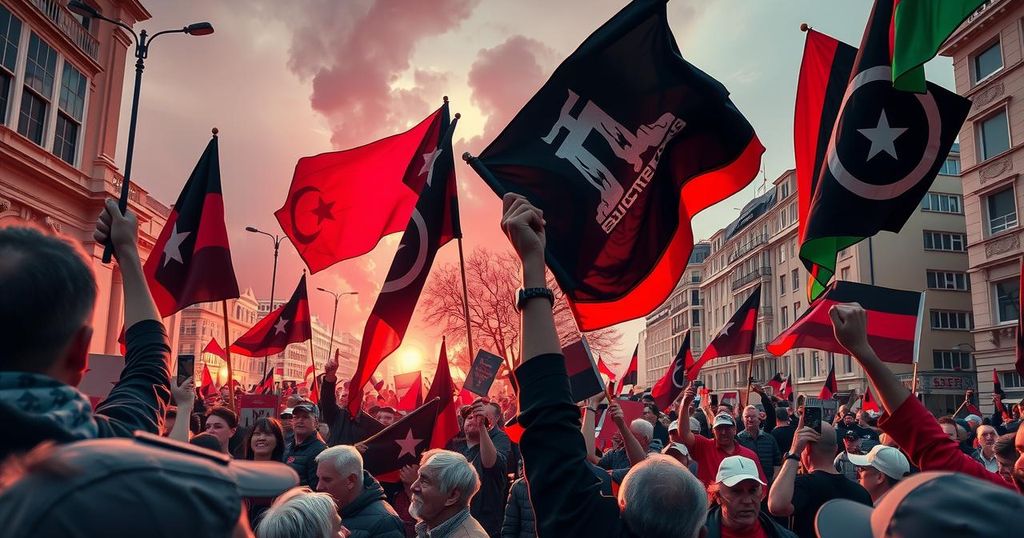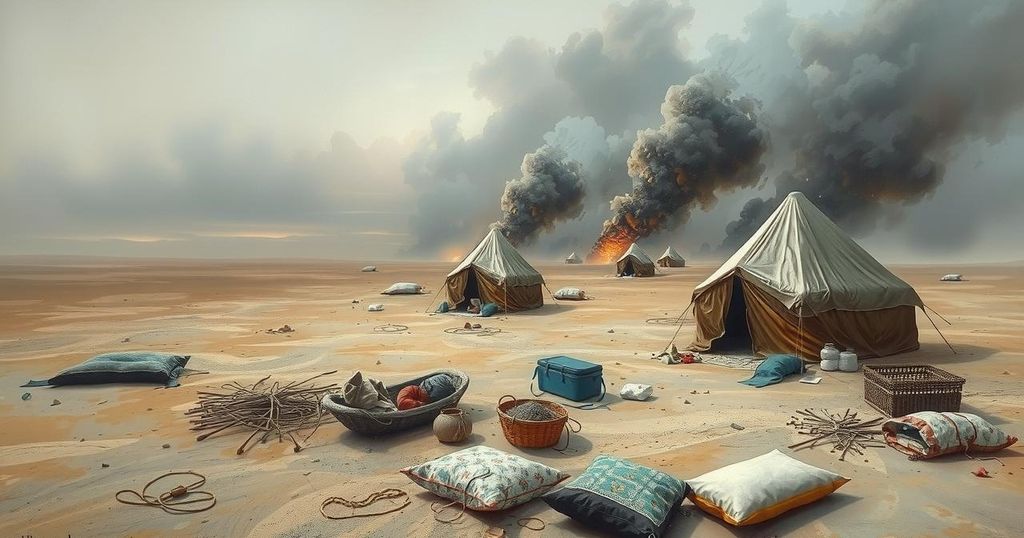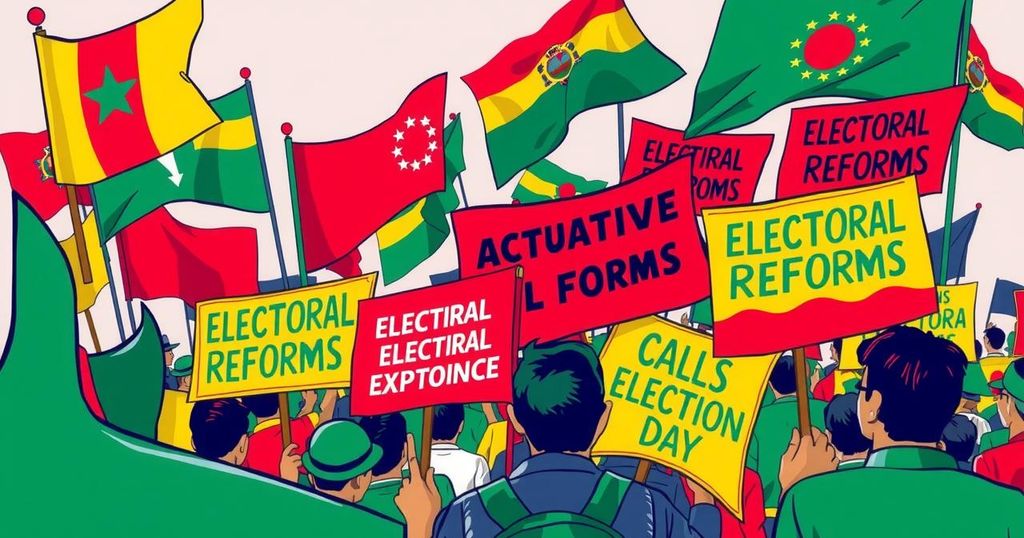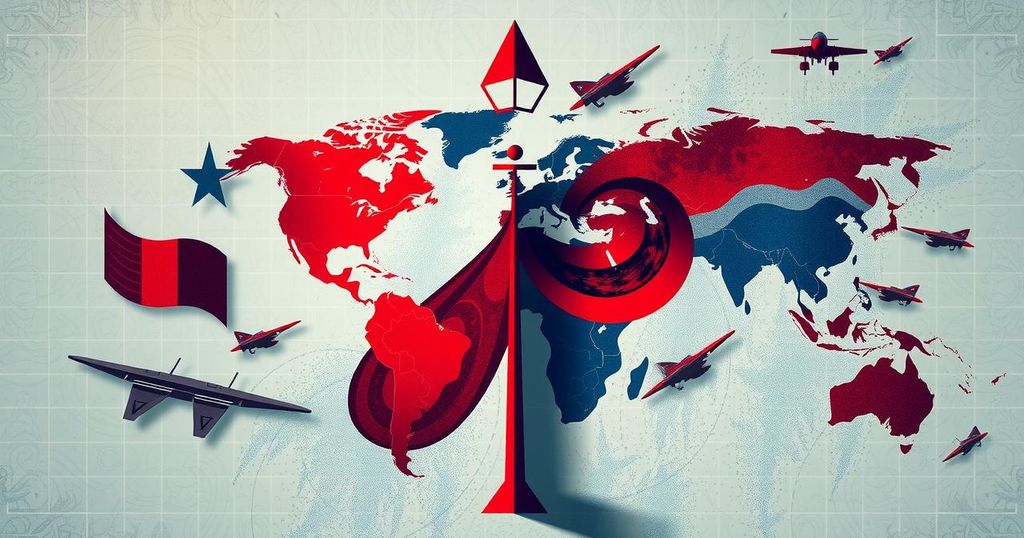Public Anger Boils Over in Mali: Protests Erupt Against Military Rule
Malian protests against Colonel Assimi Goita’s military government reflect deepening public anger over broken promises and planned extensions of military rule. After a proposal to keep Goita in power until 2030 and suppress political activity, citizens gathered in significant numbers to voice their frustrations. These escalations raise concerns of renewed violence and highlight the urgency for discourse amid worsening conditions in the country.
Protests have erupted in Mali, fueled by public discontent with the military government led by Colonel Assimi Goita, whose power grab in 2020 initially sparked hope among citizens. However, the situation has soured drastically over the years with rampant violence reported, constant delays in promised elections, and an increasingly oppressive regime. On May 3, dissent against Goita peaked as hundreds rallied in Bamako, their raised fists signaling a significant shift in public sentiment.
The trigger for these protests stemmed from government proposals at a recent national conference. They suggested that Goita could remain in power until 2030 and that political parties be disbanded. In a quick follow-up, the government suspended all political activity indefinitely, setting the stage for anticipated mass demonstrations.
This pushback represents a rekindling of the spirit that once united Malians against their former rulers. Many protesters, once supporters of Goita, are now disillusioned, viewing these moves as a blatant attempt to solidify power. “For many people, even those who supported the government at first, this is a step too far,” remarked Ousmane Diallo from Amnesty International.
Fears of escalation were palpable during the protests, especially as pro-transition youth clashed with demonstrators. With memories of the violent crackdowns from previous years still fresh, analysts warn that similar scenarios could unfold again if the military’s grip tightens. The political atmosphere appears charged, resembling the lead-up to Goita’s initial coup amidst rising social unrest.
Goita’s rise to power back in 2020 followed widespread discontent with prior governments’ failure to tackle armed group threats. Seen initially as a figure of change, Goita’s repeated deviations from promised elections suggest he is pushing the boundaries too far. After ousting the civilian president in another coup in 2021, he implemented a five-year transition plan that extends beyond the period initially outlined. Moreover, significant political opposition has faced crackdowns, with many leaders jailed or silenced.
The consequences of Goita’s rule have permeated Mali’s democratic fabric considerably, leaving experts skeptical about any future return to a democratic process. Mali’s maneuvering aligns it more with its military-led neighbors like Burkina Faso and Niger, who have similarly rejected the Economic Community of West African States.
A contributing factor to Goita’s enduring popularity is the seeming military successes against armed groups in the north, aided by the controversial support of Russian mercenaries. These forces have reportedly managed to stabilize some regions, although they are also criticized for the high civilian costs of their actions. Reports suggest that both Malian soldiers and Wagner fighters have inflicted civilian casualties amidst their campaigns, leading to accusations of extrajudicial killings.
Human rights organizations have pointed out alarming patterns of violence against various ethnic groups erroneously associated with these armed factions. Human Rights Watch reported that in 2024 alone, at least 32 civilians were killed under dubious circumstances, alongside hundreds of homes razed. Meanwhile, new displacements have surged, with numbers estimated at 3.3 million throughout Mali and its neighbors due to this ongoing violence.
As public dissent roils and civic engagement decreases, the people in Mali are left grappling with a grim situation. Analysts suggest that the purely militaristic approach adopted by Goita may only worsen the situation. Comprehensive dialogue appears increasingly indispensable as violence continues to escalate against civilians caught between the crossfire. “When you intensify fighting, you will see more attacks; it is just logical,” Diallo noted, underscoring the grim reality for ordinary Malians suffering the brunt of this turmoil.
The recent demonstrations in Mali underscore a significant public backlash against Colonel Goita’s military government as citizens express growing discontent over broken promises and a tightening grasp on power. The protests signal a reawakening of civic engagement among Malians tired of delayed elections and political oppression. The situation remains precarious, especially as past memories of violent crackdowns loom, prompting concerns over possible escalations in government response. Ultimately, the path forward appears riddled with complexity, highlighting the urgent need for dialogue amidst ongoing violence and displacement.
Original Source: www.aljazeera.com




Post Comment